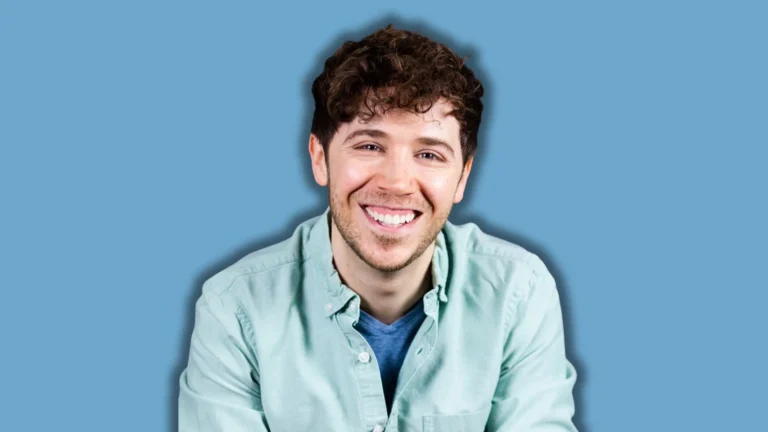The vast room buzzed with voices pleading their case. Boys and girls from all over the state of Missouri were trying to talk their panel of judges into really hearing their speech. Because of the multitude of voices speaking all at once, it was impossible for me to single one out, and so I tried to refocus, snapping my wandering eyes back to the judges in front of me.
It was the year 2019, I was in my junior year of high school and giving a speech with my partner at the FCCLA (Family, Career, and Community Leaders of America) state competitions in Osage Beach, Missouri. We were a part of a room full of teenagers, all trying to explain to the judges what we had been doing all year long. My partner and I had chosen to do a service project for a non-profit organization that works with victims of sex trafficking. We had compiled our efforts into a portfolio and were attempting to convey our results through an oral presentation.
At the end of our speech, one of the judges raised her hand, looked me square in the eye, and asked, “Do you know someone that connects you to this issue and motivated you to advocate for it?” I froze and my mind scrambled to find a jaw-dropping experience I could share that would bring tears to this frigid figure before me.
My passion for the issue had not come from personally knowing anyone who had been sex-trafficked or being abused in this way myself. No, my passion came from listening to the stories of others, from memorizing the statistics and endeavoring to do something about it.
The seconds ticked by as I thought, and then I remembered that a relevant incident had happened in my small town, but hadn’t necessarily been the driving force for my work ethic over the past year. Nevertheless, I found myself spewing out the story, trying to calm the judge’s doubts about our genuineness towards the project. When I came to the end, she nodded in satisfaction, and we moved on to discuss other details.
I often find myself thinking about that exchange. It is interesting to me that we feel we must have a personal connection to anything we zealously pursue, otherwise we are just a “wannabe”. If we haven’t experienced it, we supposedly shouldn’t be sticking our opinion where it doesn’t belong. This is a dangerous idea to have and can slow the progression in putting an end to tragedies like sex trafficking.
What if, when discovering the horrors of sex trafficking, I looked away because it wasn’t necessarily my problem? The reality is, it is most definitely a universal “us” problem, whether we are directly or indirectly affected.
By researching, I learned that the problem of sex trafficking was massive in scope. For example, in 2019 sex trafficking was the third most profitable organized crime in the world and the leading contender for the fastest growing crime on the international stage? Borders around the world are seeing an influx of smuggled trafficking, numbers reaching as high as 800,000 annually. Half of those numbers are children. The “American Dream” becomes a nightmare for most victims of sex trafficking, as the U.S. is the number one destination for them to be placed. (You can find more statistics like the ones above here.)
My research also taught me that the effects of sex trafficking on survivors are no small matter. Research shows that, tragically, most have escaped this horrific abuse only to find themselves plagued by post-traumatic stress disorder (PTSD), depression, anxiety, and in many cases, an inability to integrate back into society. In a study with 131 survivors of human trafficking, 66 of which were sex trafficked, almost the entire group (98%) was diagnosed with PTSD, and half of the group considered suicide. The participants that had been sex trafficked were 14% more likely to experience PTSD than other survivors of human trafficking; they also had much more severe symptoms. The depression rates were at 70% for the sex trafficking survivors. These survivors had lived through the horror of sex trafficking and would forever be altered by it.
When I learned of facts like these, I was devastated to think of the continued suffering of survivors. I don’t personally know any of the survivors I speak of, yet I am still moved to act every time I make myself more informed on the issue.
In addition to being moved by statistics, I was also moved by stories. Stories are a powerful tool in stirring others to care about the issues and take action. Stories provide depth, characteristics, and give a personal voice to the realities of sex trafficking. Operation Underground Railroad publishes countless testimonies from the survivors they help; these testimonies can allow us to walk in the proverbial shoes of survivors for not just a mile, but a lifetime.
If we have a passion, it is important we know how to channel that passion into being productive. There are numerous ways one can help slow this social disease without having to change their entire lifestyle. For starters, by ensuring that our close friends are made aware of sex trafficking, we are shining more light into the darkness. Another easy way to do good is by linking arms with organizations that are dedicated to fighting sex trafficking – such as NCOSE. For example, if you subscribe for NCOSE’s updates and action alerts, you will frequently receive easy-to-complete online actions (e.g. signing petitions, letters, emails, etc), which allows you to add your voice to the call for change. Donating to NCOSE and other similar organizations is another great way that anyone can help. Big or small, whatever you can contribute will add up to make a great difference. If you find yourself still wanting to do more, you can look for opportunities to volunteer hours of your time to anti-sex trafficking organizations.
Now that I am older and more confident, I know exactly how I should have responded to that judge when she asked I produce a sob story to placate her concerns. I should have looked her in the eye and said, “No, as a matter of fact I don’t know anyone who has suffered sex trafficking, but I do have a heart and a conscience, and I believe that knowing a survivor shouldn’t dictate whether I choose to combat evil with goodness. I can love people and fight for them and not even know them.” This holds true for all of us, and the world is a better place because of it.
About the Author: Alexis Goodman is a student at Brigham Young University-Idaho





